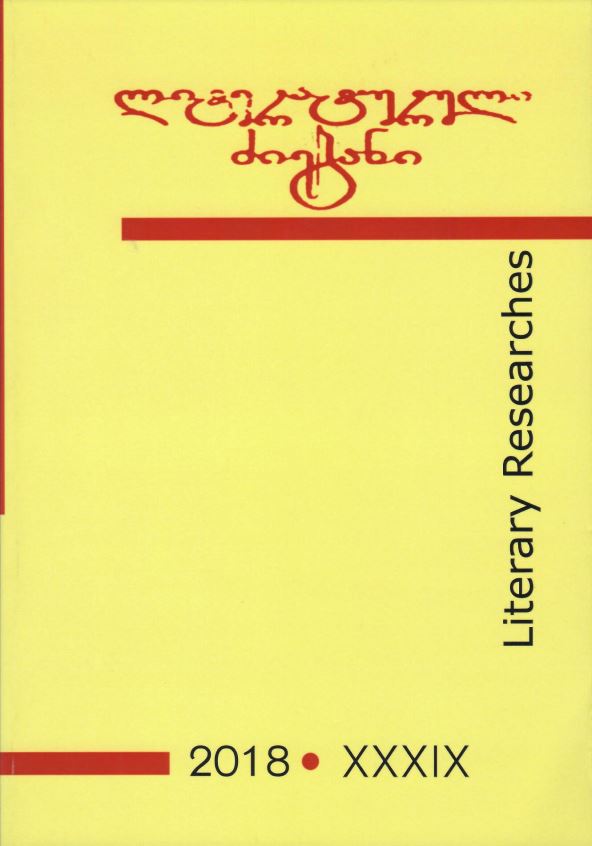გამოქვეყნებული 2018-12-20
საკვანძო სიტყვები
- Vazha-Pshavela,
- God's Image and Its Symbolic Representations
როგორ უნდა ციტირება
ანოტაცია
God’s image is expressed in Vazha-Pshavela’s works by means of the following symbolic representations: The Shepherd (poem – The Mist has Covered); The Road (Poem – I Have offered Bribe to the Muse); The Door (Poem – The Distressed Piper); The Guest (Poem – The Christmas Tale; short-story – The New Year in Pshavi); The Trinity (“God’s Council”, “Heaven’s Judging”) (Poem – Poest’s Song); Heavenly Bride (Poem – My Begging; short-story The Dream; Poem – The Kingdom of Love); The Voice (Poem – My Begging; short-story – The Ghost); The Sun (Short story – The Ghost), The Eagle (Poem – Loneliness). When discussing the aforementioned topic consideration should be given to the point that Vazha’s literary works are interconnected and complement each other by means of content; interrelation of the texts emprovers the existence of their inner connection.
The main novelty of the essay is the consideration of The Voice as the image of the God, which was determined by the direct incompatibility of the given feature image with the context and by the replacement of the alternative image from another text of the writer. Activation of the “alternative” notion allowed us to consider the issue in the interdisciplinary context simultaneously in literature and theology.
By the diverse and in-depth representation of the God’s image, even by its “folklorization”
and poetic reconsideration, it is clear that the main basis for Vazha-Pshavela’s thinking is the
Bible. The writer’s worldview is Christian and all the rest – the folklore and mythos – is just the material used by the writer to tell about his thoughts.

